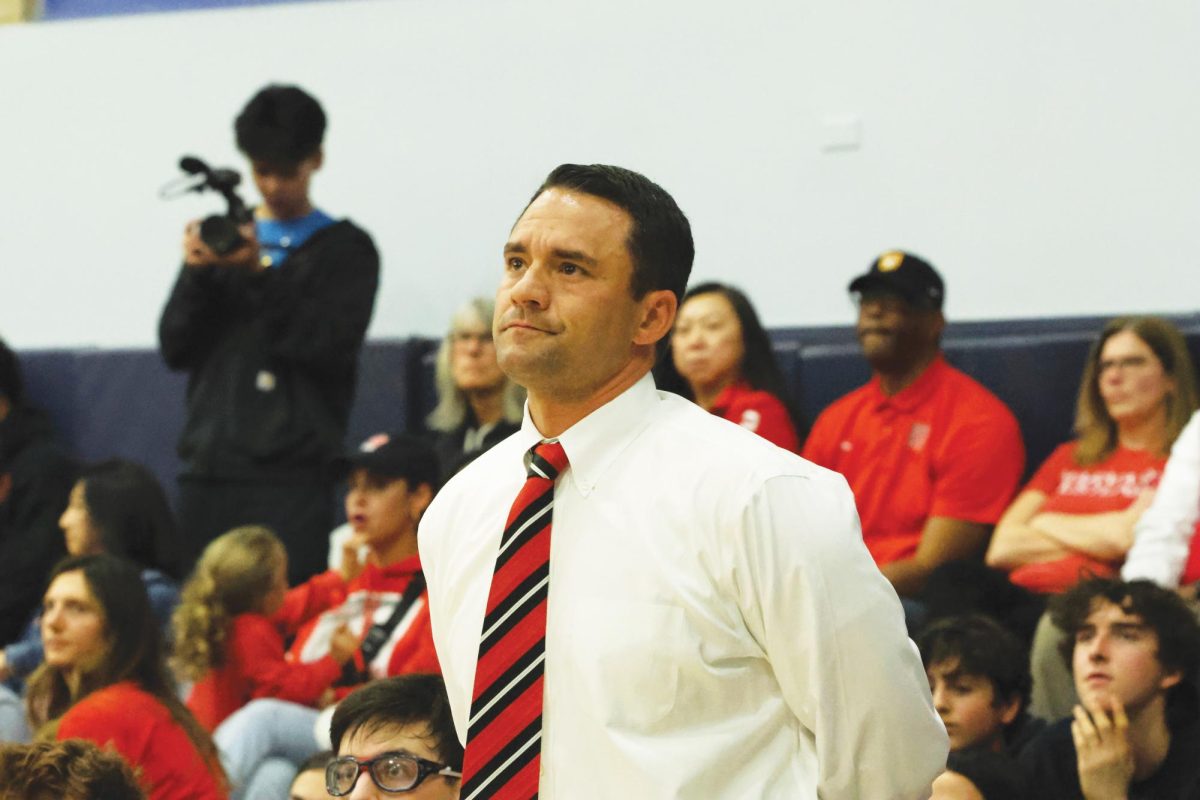By Julia Aizuss
A biological anthropologist, primatologist, herpetologist and conservationist, who Time Magazine called the “savior of the planet,” spoke to the Upper School on Wednesday about the importance of maintaining biodiversity on the planet.
Russell Mittermeier, who has six species named for him and is the president of the environmental nonprofit Conservation International, was the 12th speaker in the Brown Family Speaker series. The Brown Family Speaker series, established by Linda and Abbott Brown (Russell ’94, David ’96) in 2000, has previously included people like jazz musician Herbie Hancock, journalist Fareed Zakaria and most recently artist and architect Maya Lin.
Mittermeier has been called the “Indiana Jones” of conservation, President Tom Hudnut said.
Alan Sneider ’12, who conducted research in China on giant pandas with Mittermeier this past summer, described how his work with Mittermeier affected the way he viewed his lifestyle, noting that he was now more conscious of his water and electrical consumption.
“Our selfishness is leading to the destruction of the planet,” Sneider said.
Mittermeier began his speech with a definition of biodiversity, describing it as the “sum total of all life on earth” and the “basic underpinning of long-term sustainable development.” After noting how little we still know about the life forms out there, he stressed the importance of protecting this life by describing the myriad threats to biodiversity, among them mining activity, global climate change and slash-and-burn agriculture.
“The biggest threat first and foremost is the agricultural industry,” Mittermeier said.
He then introduced one of his main themes, the importance of wilderness areas with high biodiversity, or hotspots, a term coined by British ecologist Norman Myers in 1988.
There are 35 recognized hotspots worldwide, but 86 percent of this hotspot land has been lost over the past 100 years, Mittermeier said. Many of the animal and plant life in these hotspots are endemic species that are found nowhere else in the world.
Mittermeier focused throughout his speech on Madagascar, which he called a “microcosm of the problems and challenges we face and what we’re at risk of losing.” Madagascar, which has a high concentration of endemics, is also one of the best examples of a bio-diverse hotspot, Mittermeier said.
It is also “one of the world champions in habitat destruction,” Mittermeier noted, with “the worst erosion you find anywhere on the planet. Every year the rivers run red with eroded soil.” Despite problems like these that face Madagascar and other high bio-diverse wilderness areas like the Amazon and the Congo forests, Mittermeier told of the many funds he has established and numerous organizations he has worked with to help maintain their unique environments.
Mittermeier repeatedly stated the importance of working with local governments and indigenous peoples to help in conservation.
Indigenous peoples “are our greatest partners in the conservation movement,” Mittermeier said. He has worked with 50 indigenous groups worldwide and assisted them in beginning policies of ecotourism, which he called “one of the best ways of demonstrating to local communities that conservation pays and provides benefits to them.”





































